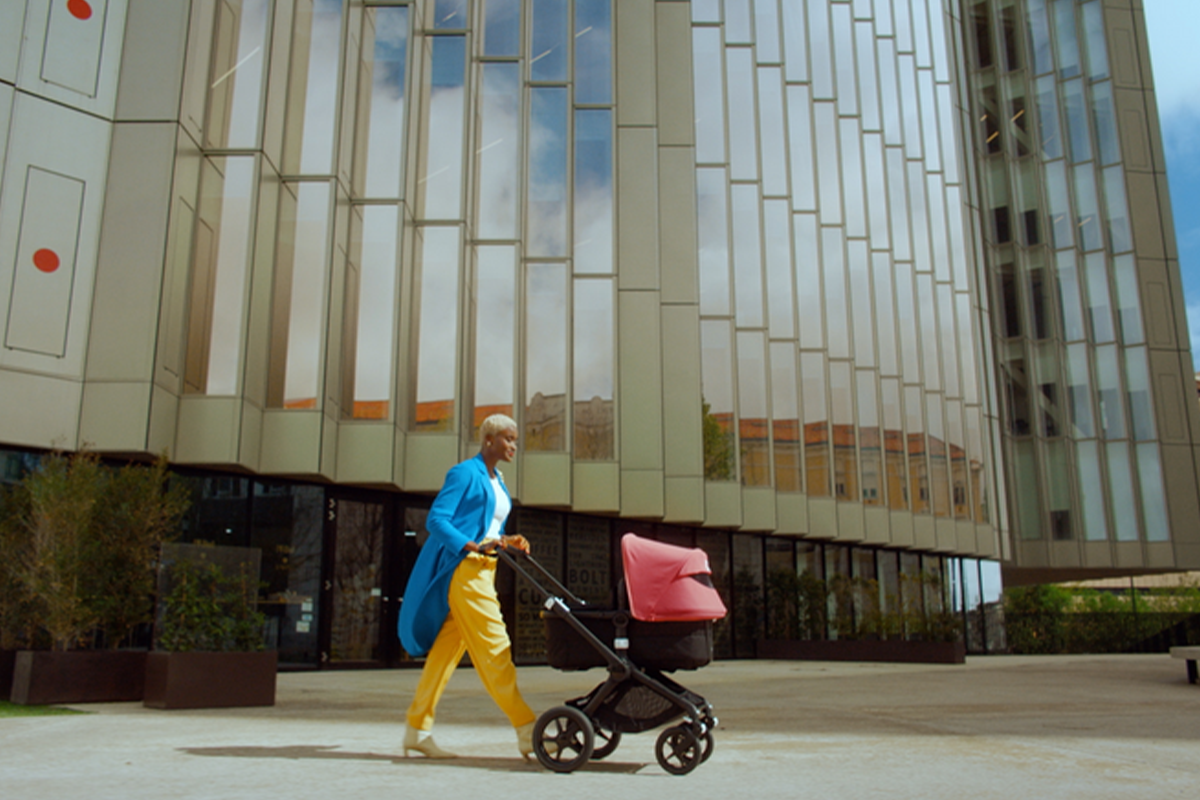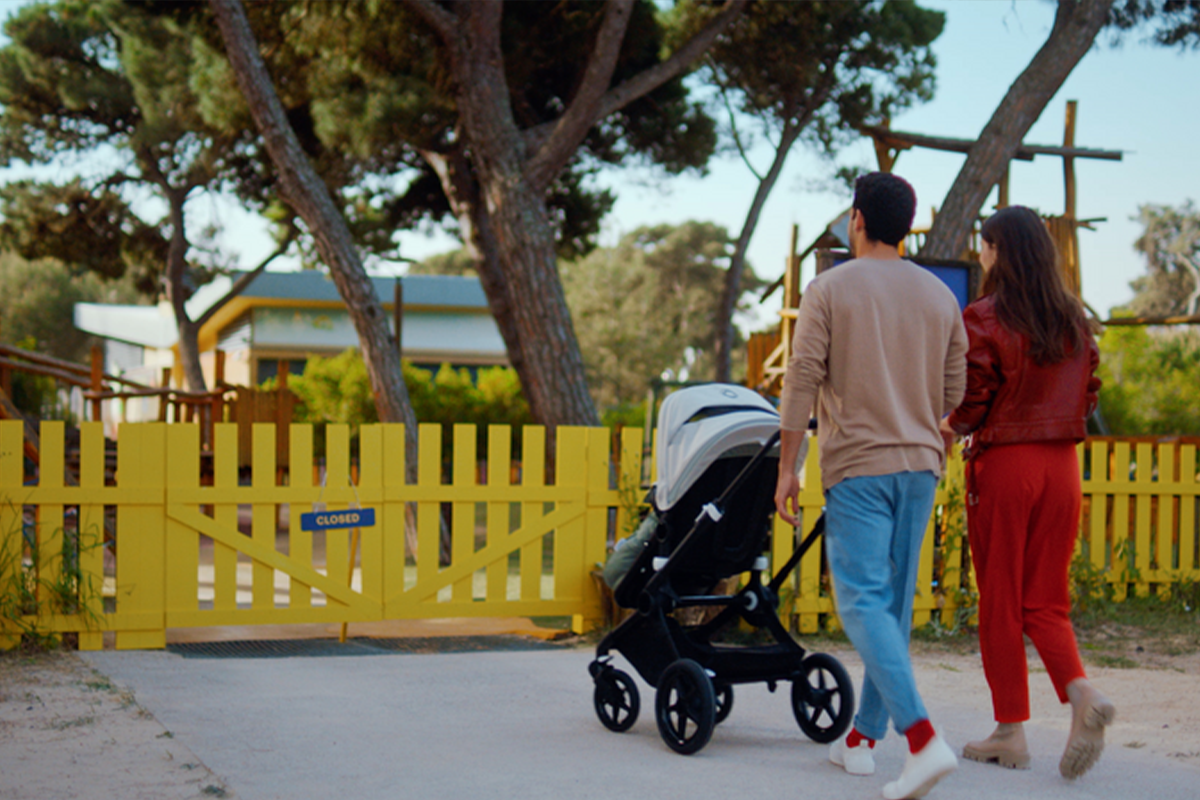
Fourth trimester: What to expect for you and your baby
The postpartum period — after pregnancy — is often called the fourth trimester. While pregnancy is filled with expectations and all sorts of emotions, the first few weeks after your baby is born is a time of adjustment for both of you.
Maybe you’re in the throes of the fourth trimester or love someone who is. Or, you might simply be preparing for it as you await the arrival of your new baby. Whichever is true, you’re in the right place.
We’ll discuss what the fourth trimester is and what to expect for yourself and your baby. Plus, we’ll wrap up with some practical tips on what to do during the weeks following birth.
What is the fourth trimester?
In case you’re feeling a bit disoriented about when the mysterious “fourth trimester” happens, it’s simply the 12 weeks after you give birth.
If you’re pregnant and eagerly awaiting the arrival of the new family member, you might have trouble imagining anything but joy during the first few weeks with your tiny pal. For many new parents, the first weeks with their baby are a happy, joyful time, even amidst the fatigue.
But, it can also be a time of adjusting — mentally, emotionally, and physically — for the whole family. And the new mom who just gave birth will be healing physically, dealing with a slew of hormones, and potentially breastfeeding.
While the whole family adjusts to having a new baby in the house, in this article, we’ll focus on the new mom and the baby. Let’s start by briefly discussing what to expect for your baby during the fourth trimester.
What to expect in the fourth trimester: Your baby

A need for comfort
Remember that your baby is getting used to you and life outside of your womb. They may need help and comfort as they adjust. They’ll want to feel safe, secure, and cozy.
Hold your baby and sway, wear them in a sling, wrap them in a swaddle, and provide skin-to-skin cuddles.
Weight loss and gain
Your baby’s weight at birth could range from around five and a half pounds to almost nine pounds. In the fourth trimester, your baby will both lose and gain weight.
Keep in mind that it’s perfectly normal for them to lose a few ounces during their first few days. Why? They’ll be doing away with the extra fluid they’re born with. It’s nothing to worry about. They’ll gain weight later.
Nemours Kids Health says that newborns gain around one ounce per day throughout the first month of their life.
Frequent feeding
Of course, for your baby, the fourth trimester will be filled with eating, sleeping, and pooping. They will breastfeed or take a bottle frequently.
If you’re nursing, your newborn might breastfeed at least eight times in 24 hours. If you’re giving them formula, they may take a bottle a little less often.
Wet and dirty diapers
Plan to change wet and dirty diapers in the fourth trimester — and plenty of them. Once your milk comes in, expect around six to eight wet diapers per day and several dirty diapers.
What to expect in the fourth trimester: Your body and mind
Now that you know what your baby will be up to (mostly sleeping, eating, and creating wet diapers), let’s turn to what to expect from your body and mind during the fourth trimester.

Fatigue
One experience common to all new parents: fatigue. With a baby to care for, you won’t be getting the sleep you did in your pre-baby days.
And if you’ve just given birth, you’re recovering from the work and exhaustion of childbirth. If that’s not enough, your body is also doing the amazing work of producing breast milk (if you’re nursing). You have plenty of reasons to be tired!
A healing process
For postpartum moms, the fourth trimester is a healing process. Keep in mind the incredible feat of pregnancy and childbirth, whether it’s vaginal or a C-section. Your body is a rockstar, and it needs time to heal.
For example, you might have back pain, hemorrhoids, a lower sex drive, and feel tender as you heal from any tearing. You may even notice problems holding your bladder.
If so, pelvic floor physical therapy might be what you need. During this time, be sure to follow up with your doctor.
Breastfeeding discomfort

Remember how your breasts grew during pregnancy? That was your body preparing to feed your new baby. Now that your newborn has arrived, you may notice your milk leaking in the weeks after birth. And if you’re breastfeeding, you may also experience sore nipples.
Hair loss
Just as your hair may have changed during pregnancy (hello, lovely locks), with another hormone change after birth, your hair will return to normal and you may experience some hair loss.
This hair loss is at its height around three or four months postpartum, at the end of the fourth trimester.
Changing hormones
Speaking of hormones, it’s important to remember that your fluctuating hormone levels cause more than just hair loss. They can affect you mentally and emotionally as well as physically.
You may cry easily or feel sad, nervous, alone, and stressed. This is referred to as the “baby blues.” However, some women experience postpartum depression, which is a more serious mood disorder.
What to do in the fourth trimester

For postpartum moms in the fourth trimester, here’s what you’ve been waiting for: practical tips on what to do.
If you’re reading this article while you’re still pregnant, you’ll want to apply some of these tips before you deliver to set yourself up for a smoother postpartum experience.
Educate yourself about mental health
We mentioned the “baby blues” that can sometimes strike during the fourth trimester as well as postpartum depression.
Whether you’re pregnant or already holding your new family member, educate yourself about postpartum mental health and the signs to watch for. It’s a good idea for your partner to educate themselves as well so they can be on the lookout for your well-being, too.
If you’re sad, emotional, or just not yourself, reach out to a psychologist or counselor for professional help.
Turn to your friends and family
Turn to your family and friends to ask for help unashamedly. For some people, it’s beneficial if you tell them specifically what you need help with.
You could ask them to bring a meal, watch your older kids, pick your kids up from school while you rest, or simply come over to keep you company.
Take care of yourself
It may be simple, but it’s worth saying. Take care of yourself in all of the basic ways — rest, stay hydrated, and eat healthy food. If you’ve had a C-section, caring for yourself also includes adjusting your daily activities while you heal.
For example, choose baby products that are easy to use without bending over, such as the Bugaboo Stardust play yard. With a built-in mattress that’s adjustable to two heights, it’s easy to lift your newborn in and out without compromising your recovery.

Adjust your expectations
Another way to take care of yourself is to adjust your expectations. The reality of the fourth trimester might be very different from what you thought it would be. Be flexible, adjust your expectations, and give yourself grace.
You need time to get back into the swing of life. Certain tasks might have to take a back seat while you spend these weeks tending to yourself and caring for your newborn. And that’s perfectly OK.
Move your body

Your expectations of your fitness level and exercise program might have to be adjusted in this period, too. Stick with activities that have been cleared by your doctor, and take things slowly.
Walks are a great way to gently move, get out of the house and into the great outdoors, and take your baby along for the ride. Find a stroller that makes strolling a breeze, no matter where you live.
If you need an all-terrain stroller, the Fox 3 is what you’re looking for. For easy-breezy transportation, opt for the Lynx, our lightest, full-size stroller. Or, if you’re heading out with two little co-pilots in tow, try the Donkey 5 double stroller.
Seek medical care
Last but not least, we’d like to remind you to seek medical care if you have any symptoms that are out of the ordinary.
According to Shivani Patel, M.D., red flags include extreme tiredness, headaches or dizziness, abdominal pain, vaginal bleeding lasting longer than a couple of weeks, signs of postpartum depression, and thoughts of harming your baby.
Your fourth trimester: A brand new adventure

The fourth trimester is an adjustment period and brings some challenges. But it’s also the beginning of a brand-new adventure. Expect your baby to eat, sleep, and create dirty diapers. And they’ll need comfort from you as they adjust to this world.
You may experience fatigue, breastfeeding discomfort, and signs of hormone fluctuations. To meet the fourth trimester head-on, refer to our tips above.
Learn about postpartum mental health, take care of yourself, ask for help, and opt for baby products — such as the Stardust play yard or a Bugaboo stroller — that make caring for your baby (and yourself) that much easier. Your wonderful adventure is just beginning!